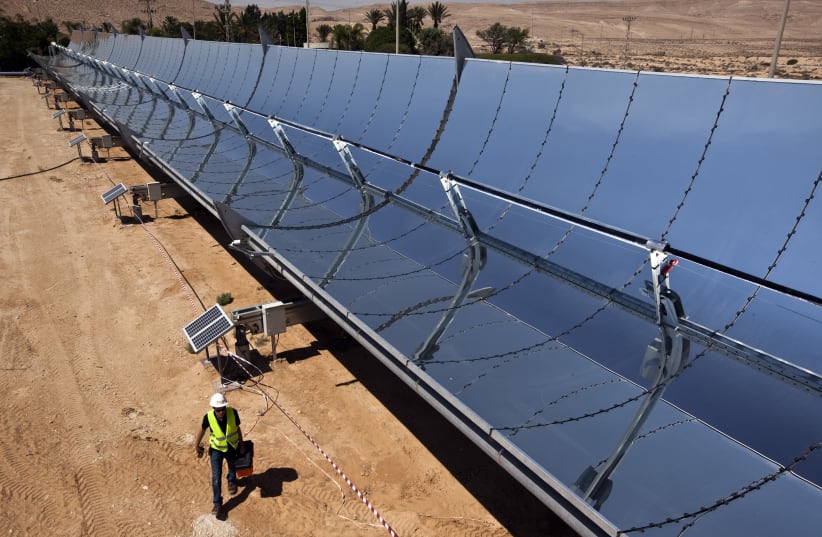The inter-ministerial tenders committees for seawater desalination and solar power plants invited companies to declare their interest in establishing a new desalination facility in the Western Galilee and a large power plant near Dimona on Wednesday.
The publication of pre-qualification tender forms for the construction and operation of the desalination plant, located north of Acre, follows the government's approval of a strategic plan in June 2018 to cope with the impact of long-term drought. The plant will be capable of producing at least 100 million cubic meters per year (mcmy) of drinking water.
Once construction of the new facility is complete, seven desalination plants across Israel are expected to provide approximately 85% to 90% of national household and municipal potable water needs.
"Last week, the housing cabinet approved the statutory plan for the construction of a desalination plant in the Western Galilee, after a decade during which the state worked to approve the plan," said Accountant-General Rony Hizkiyahu. "The facility in this location is essential for the water market and will ensure continued and proper water supply to the area in future."
According to documents published by the committee on Wednesday, the Western Galilee plant will be located about 1 kilometer in-land, adjacent to the Golani Brigade's Shraga training base, and desalinate water from the Mediterranean Sea by reverse osmosis technology.
Desalinated water will be supplied throughout the year, in accordance with seasonality supply regulations. If required, the plant will be able to supply additional water to the Sea of Galilee.
The solar power plant, the country's largest to date, will be built south-west of the Negev city of Dimona and stretch across three square-kilometers of terrain. Construction work on the 300 mega-watt solar farm is expected to commence next year and finish in 2023.
For the first time, the tender is expected to require the use of battery-based energy storage technology, enabling increased flexibility in electricity supply.
"This is a significant step, alongside many other initiatives, to realize the ministry's policies of increasing its targets for electricity generation from renewable energy by 2030," said Energy Ministry director-general Udi Adiri.
